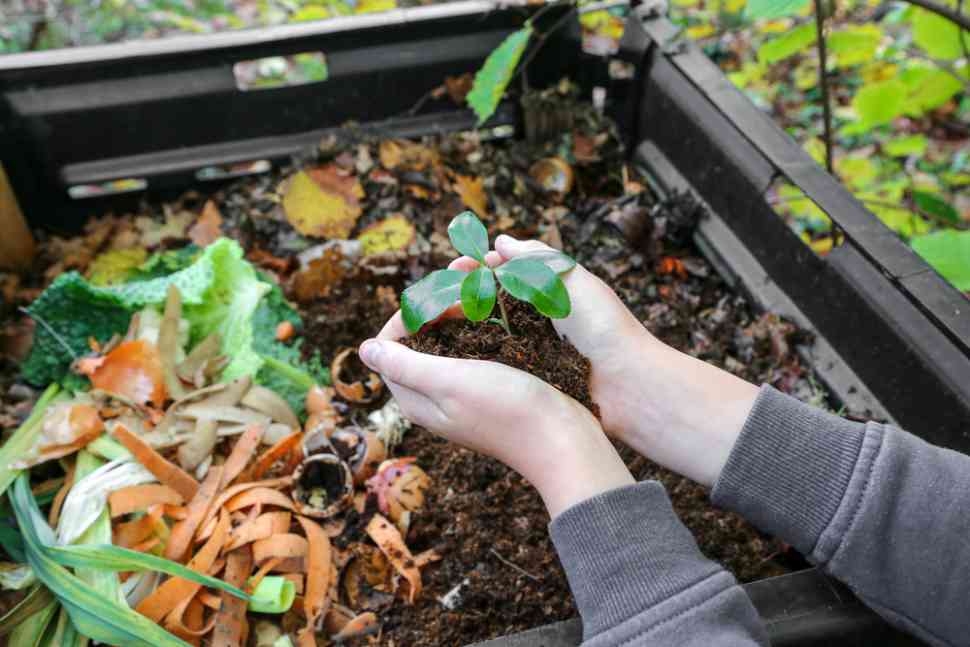Conscious Food Choices That Support The Environment

Hands holding compost over composter with organic waste
Personal trainers and people who are involved with diets like to say ”we are what we eat.” We wouldn’t go that far, but the choices one makes regarding the gastronomical options they have are crucial. To support the environment, we should start from the cells of the society, which are the citizens. Each individual can make choices that will make a difference once you add them up. Unfortunately, eating and cooking ethically is usually pricey, and this is why it is more often the wealthy individuals that can be conscious about it.
For those who have the luxury to adopt this lifestyle, we have some open-minding suggestions that will change your habits.
- Organize the kitchen cabinets
Everything starts with a clean kitchen. We all tend to keep stuff, and in the end, we have no idea of what is in our kitchen cabinets. As a result, when we go shopping at the supermarket, we end up buying stuff we already have and producing a large amount of trash. It is the trash from the packaging and the trash from the unconsumed products. So before you go shopping make sure you know what you really need. - Do some research
If you are the one who deals with shopping from the supermarket it is important to do some research regarding what you buy. It may sound boring but consider that you will do the research once and after that, you will always buy the same products without having to dig into the market’s options again and again. Think about what you want from your food and buy wisely. You may be one of those who prefer to consume products that are not Genetically Modified (GMO). In addition, you may want to check on the meat you buy. Have they been given antibiotics and have they grown up in good farms? In the United States consumers are provided with many options. Hormones are another big issue since they are not only in animals but plants as well so you might want to check up with that also. - Gardening can be a choice
Have you ever thought of planting seeds that you can eat once they grow up? If you are one of the lucky people who have a garden this would be a great idea. It allows you to eat stuff that you are sure is healthy. Besides, it is a perfect opportunity to get closer to nature and if you have kids it is an amazing school of how nature works and how vital it is for our survival. If you don’t feel confident about your skills you can use the advice of a professional and ask people who work in the maintenance of your house to help you out. The ideal would be to have a gardener but that would be necessary only if you grow a considerable amount of plants. - Composting is important
In the past, people who lived in the villages would do composting without thinking it is something special. If they had any organic waste they would throw them on the ground and expect them to feed the soil and help the development of the plants there. Today composting comes in many forms and it is as important as recycling. You have the option to buy special bins where you throw the organic waste. Inside the bin, you also have special soil that helps in the composting procedure and you practically create compost in your house. The other option is to keep organic waste separate from the rest of the trash and throw it in special bins that are made for this purpose next to the regular bins. These bins are now located in many cities and allow people to help with composting. - Support local farmers
One of the best things you can do is to buy from people you know. Unless you live in the city center where this option may be harder to find, it is more likely that farmers who want to promote and sell their products will love to help you have a variety of options. Growing your own food is not easy for everyone and even in that case, you can’t have everything in your garden.
Bring the best of the CEOWORLD magazine's global journalism to audiences in the United States and around the world. - Add CEOWORLD magazine to your Google News feed.
Follow CEOWORLD magazine headlines on: Google News, LinkedIn, Twitter, and Facebook.
Copyright 2025 The CEOWORLD magazine. All rights reserved. This material (and any extract from it) must not be copied, redistributed or placed on any website, without CEOWORLD magazine' prior written consent. For media queries, please contact: info@ceoworld.biz








